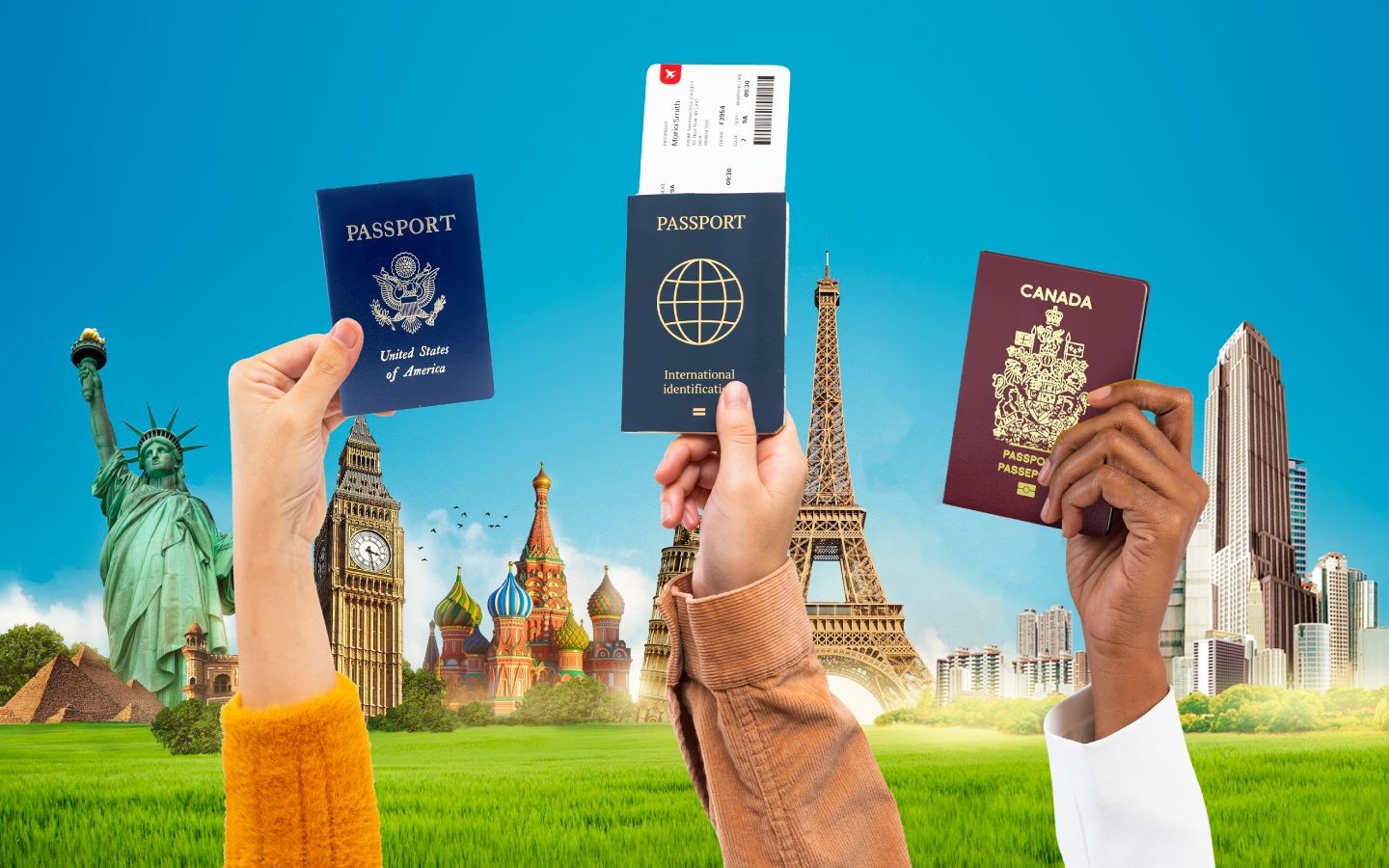
Vietnam visa exemption policies have been implemented for tourists from several nations, allowing them to visit the country without obtaining a visa for a specified duration. If you are planning to visit the S-Shaped country, all the comprehensive information regarding Vietnam visa exemption in this article will help you smoothly enter Vietnam.
1. List of countries and territories entitled for Vietnam visa exemption
As of January 2022, travelers holding regular passports from 25 countries can enjoy visa-free entry to Vietnam. Below is a comprehensive list of countries eligible for Vietnam visa exemption, along with their respective permitted durations of stay:
| Country | Duration of stay | Purpose of entry |
| Chile | 90 days | Purpose of generating income is not allowed |
| Panama | 90 days | Purpose of generating income is not allowed |
| Cambodia | 30 days | N/A |
| Indonesia | 30 days | N/A |
| Kyrgyzstan | 30 days | N/A |
| Laos | 30 days | N/A |
| Malaysia | 30 days | Tourism, conferences, seminars, visiting relatives, business negotiations |
| Singapore | 30 days | Purpose of generating income is not allowed |
| Thailand | 30 days | N/A |
| Philippines | 21 days | N/A |
| Brunei | 14 days | N/A |
| Myanmar | 14 days | N/A |
| Belarus | 15 days | N/A |
| Denmark | 15 days | N/A |
| Finland | 15 days | N/A |
| France | 15 days | N/A |
| Germany | 15 days | N/A |
| Italy | 15 days | N/A |
| Japan | 15 days | N/A |
| Norway | 15 days | N/A |
| Russia | 15 days | N/A |
| South Korea | 15 days | N/A |
| Spain | 15 days | N/A |
| Sweden | 15 days | N/A |
| United Kingdom (Not applicable to BNO) | 15 days | N/A |

Notable points concerning Vietnam visa exemption are as follows:
- The 30-day waiting period between two stays with visa exemption has been abolished, following the implementation of the new law on entry, exit, transit, and residence of foreigners in Vietnam on July 1, 2020.
- Holders of British National Overseas (BNO) passports are not entitled to the 15-day Vietnam visa exemption. They must obtain a visa to visit Vietnam.
- Visa exemption encompasses entry, exit, and transit without the need for a visa.
- The duration of the visa-free stay is calculated from the date of entry into Vietnam.
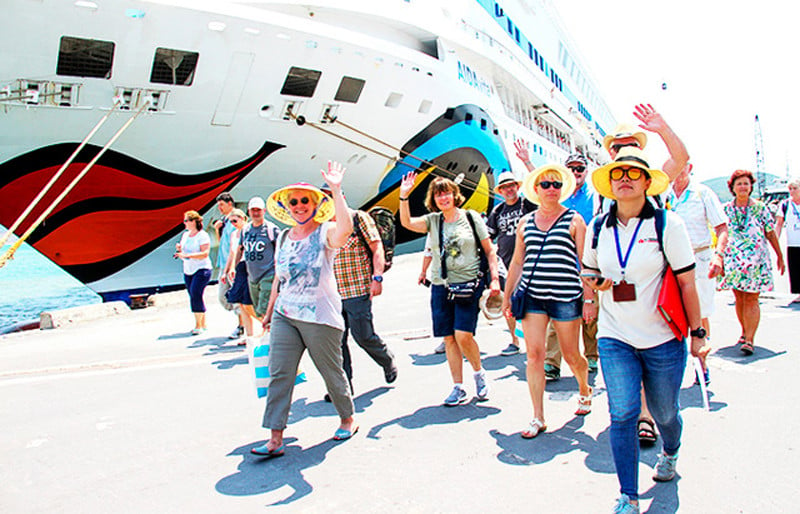
2. Other cases eligible for Vietnam visa exemption
Vietnam offers additional cases of visa exemption based on specific conditions:
- The 30-day visa exemption, which is granted to those entering coastal economic zones designated by the government. These zones must meet certain criteria, including having an international airport, defined geographical boundaries, and being separate from the mainland. Additionally, they should align with socio-economic development policies while posing no threat to Vietnam's national defense, security, social order, or safety. Phu Quoc Island is a prime example of one such coastal economic zone that qualifies for this visa exemption.
- Vietnam visa exemption is applicable to APEC Business Travel Card (ABTC) holders with valid passports. Holders of the ABTC can enjoy visa-free entry to Vietnam for a stay of up to 60 days.

>>> Read more: How to get a Vietnamese visa
3. How can foreign passport holders extend Vietnam visa exemption?
Before the COVID-19 pandemic, travelers in Vietnam could extend their visa exemption period by following a straightforward process. However, due to the current circumstances, this option is no longer available at present.
For those who wish to prolong their stay in Vietnam beyond the duration allowed by the visa exemption, an alternative method known as a "Visa Run" can be employed. This method involves leaving Vietnam and traveling to a neighboring country such as Thailand, Cambodia, or Laos. After exiting the country, the individual can then re-enter Vietnam, obtaining a new visa exemption upon their return.
>>>Tourists can easily apply for e-visa for Vietnam!
4. A detailed guide to Vietnam visa exemption certificate
4.1. What is the certificate of Vietnam visa exemption?
The Certificate of Vietnam Visa Exemption (also known as the Vietnam 5-year visa exemption) is an official document issued by a competent Vietnamese authority. It is granted to Vietnamese individuals who are residing abroad but do not hold a Vietnamese passport. Additionally, it is also provided to foreigners who are either spouses or children of Vietnamese citizens or those who are residing abroad.
This certificate is applicable to individuals who intend to visit Vietnam for specific purposes, such as visiting relatives or attending to private matters like handling paperwork or administrative procedures at national agencies.
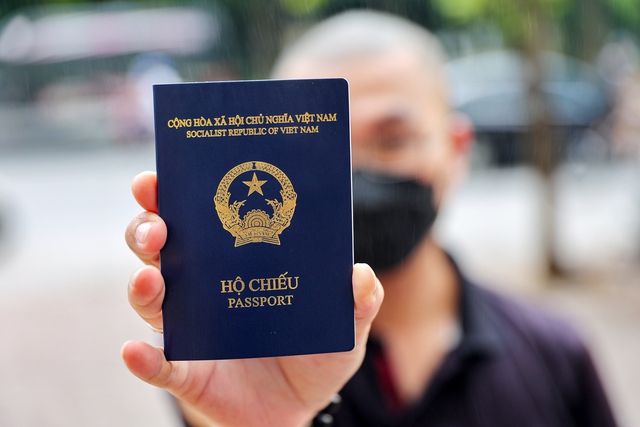
The Certificate of Vietnam Visa Exemption is granted to individuals who have special relationships with Vietnam, which includes the following categories:
- Overseas Vietnamese
- Foreigners who are spouses and children of Overseas Vietnamese
The Certificate of Vietnam Visa Exemption comes with a maximum validity of 5 years, making it the longest-term valid entry and exit document for eligible individuals. However, there are specific rules regarding its validity in relation to the passport or foreign residence document:
- Expiry Date Consideration: The expiration date of the certificate must be at least 6 months earlier than that of the holder's passport or foreign residence document.
- Visa Exemption Duration: During the 5-year validity period, the holder of the certificate can enter and exit Vietnam at any time without the need for a visa.
- Maximum Stay Duration: Despite the 5-year validity, each entry into Vietnam under the visa exemption allows a maximum stay of 6 months.
- Extension of Temporary Residence: If the validity of the visa exemption is for more than 6 months, the holder can extend their temporary stay for an additional 180 days beyond the initial 6-month period. If the remaining validity of the visa exemption is less than 6 months, the temporary stay period is limited to the remaining validity of the visa exemption, and no extension is possible beyond that period.
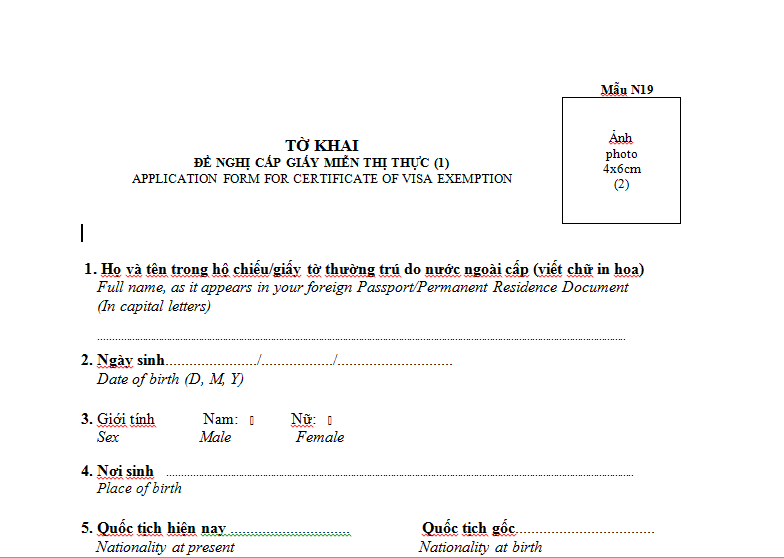
4.2. How to apply for a Vietnam visa exemption certificate?
To apply for the Certificate of Vietnam Visa Exemption, applicants must meet certain requirements and provide specific documents. The following are the necessary documents for the application process:
- Valid Passport or Equivalent Travel Document that is recognized by the Vietnamese government.
- The official Visa Application Form (Form NA9) needs to be completed accurately and submitted by the applicant.
- Two passport-sized photos, with one of the photos enclosed in the application form and the other photo put separately as part of the submission.
- Additional Documents for Eligibility Proof:
- For Overseas Vietnamese: a birth certificate, papers indicating the renunciation of Vietnamese citizenship or loss of Vietnamese citizenship, or any other documents that can verify their Vietnamese citizenship or previous Vietnamese citizenship, such as a passport, identity card, or voter card.
- For Foreigners: the registration of marriage, family relationship papers, household registration book, birth certificate, or any other relevant documents that confirm the relationship.
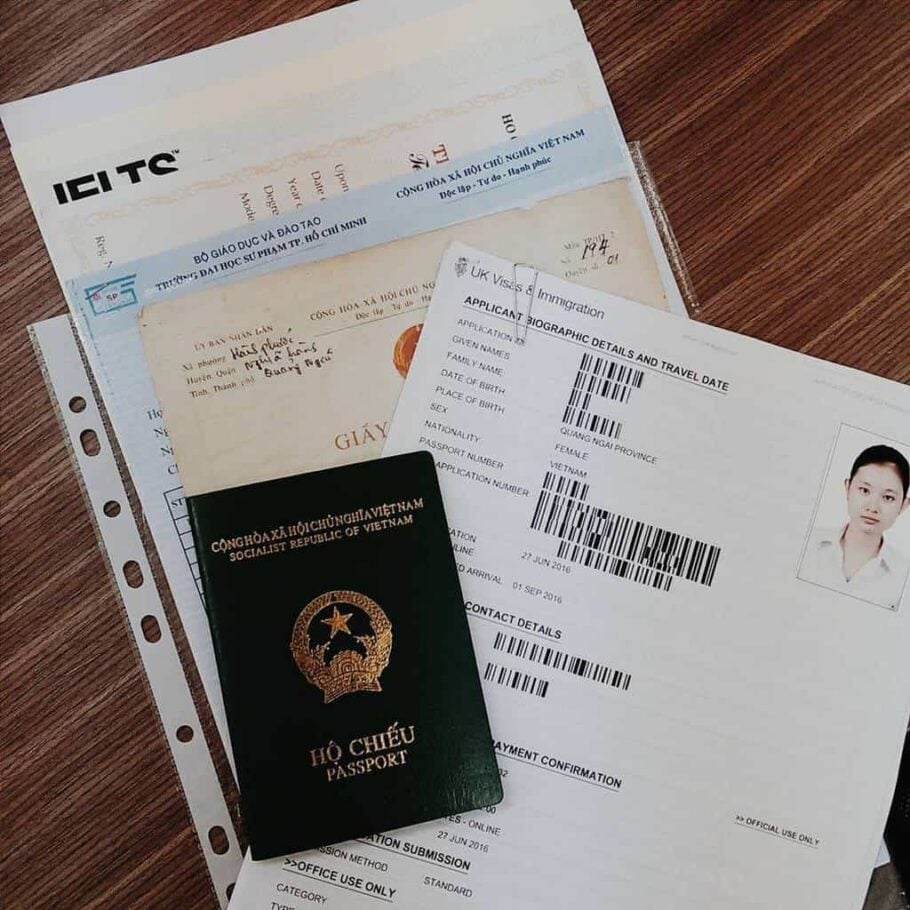
The procedure to apply for a Vietnam visa exemption certificate includes three main steps, as follows:
- Step 1: Prepare the dossier
Gather all the necessary documents mentioned above for the application based on the applicant's category (overseas Vietnamese or foreigners).
- Step 2: Submit the dossier
Applicants can submit their complete dossier at the Vietnam Embassy and Consulate in their foreign country or the Vietnam Immigration Department in Hanoi or Ho Chi Minh City. If not, the applicant will be notified and asked to provide the necessary documents for further processing.
- Step 3: Receive the result
If approved, the applicant will be granted the Certificate of Vietnam Visa Exemption.
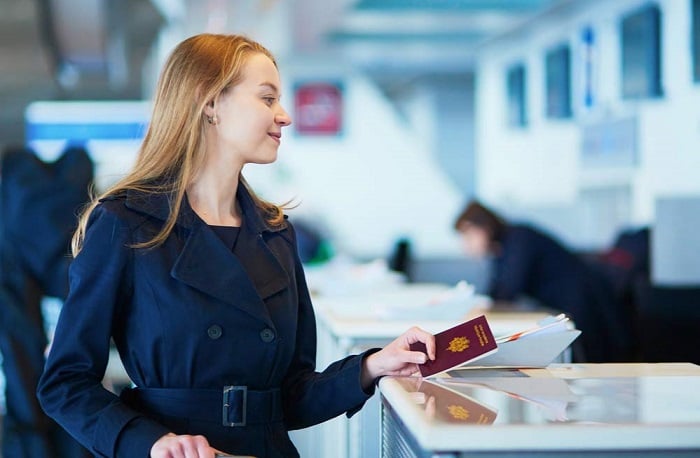
To request a stay extension in Vietnam, you must compile the following documents and submit them to the Vietnam Immigration Department:
- A valid passport
- An application for visa issuance and stay extension (form NA5)
- Supporting documents demonstrating your eligibility for visa exemption
- A notarized copy of the valid passport or identity card of the Vietnamese sponsor (if applicable)
- Temporary resident certificate
The fee to apply for the Certificate of Vietnam Visa Exemption through the Vietnam Immigration Department is as follows:
- First-time issuance: The fee for obtaining the Certificate of Vietnam Visa Exemption for the first time is US$20.
- Subsequent issuance: If you need to renew or apply for a new Certificate of Vietnam Visa Exemption after having received one before, the fee for the second and subsequent issuances is reduced to US$10.
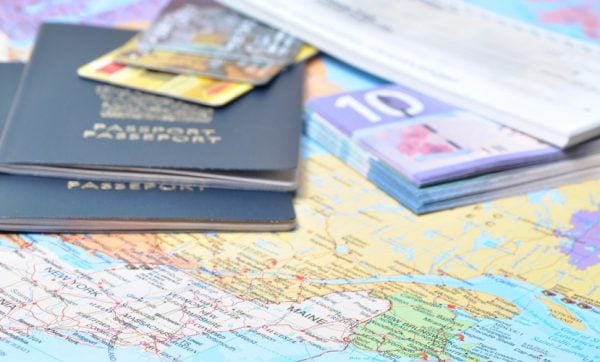
If you are planning your Vietnam travel journey, it is highly recommended that you include in your itinerary these charming destinations, including Phu Quoc, Nha Trang, Hoi An, Da Nang, Ha Long. Among the numerous accommodations available in these cities, you should stay at the hotels and resorts of Vinpearl to have a pleasant stay. At these properties, you can experience the finest amenities and personalized services that cater to your every need. The professional and attentive staff is committed to ensuring your stay exceeds your expectations, creating memories that will last a lifetime.


Moreover, you should not miss out on the opportunity to unwind with your loved ones at the amusement parks at VinWonders. These recreational centers are a vibrant blend of thrilling rides, immersive attractions, and entertainment galore.
>>> Book rooms in Vinpearl Phu Quoc, Vinpearl Nha Trang, Vinpearl Resort & Golf Nam Hoi An, and Vinpearl Resort & Spa Ha Long to enjoy top-notch facilities and services!
Vietnam visa exemption policy serves as a gateway to an enchanting and diverse country that warmly welcomes tourists from around the world. The visa exemption program has opened doors for travelers to experience Vietnam's rich cultural heritage, breathtaking landscapes, and vibrant cities without the hassle of obtaining a visa. Hopefully, this article has provided you with all the detailed information about Vietnam visa exemption to help you better prepare for your upcoming trip!

















_1742996408_1743220457.jpg)
_1743220365.jpg)



















